The Sinister Convergence of Klaus Schwab’s “Great Reset” with the Vatican and “Liberation Theology”
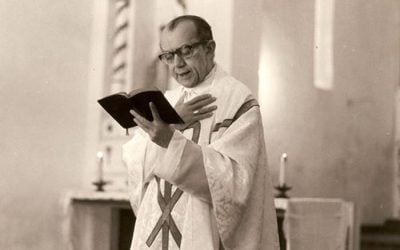
Amid the 2020 global covid lockdowns and economic dislocations it has caused, Klaus Schwab, a previously low-profile founder of a Swiss-based business forum, emerged on the world stage calling for what he called a Great Reset of the entire world economy, using the pandemic as driver.
He even published a book in July 2020 outlining his blueprint. It has been rightly called a technocratic society with global top-down central planning. Schwab uses global warming fears and the plight of the world’s poor to justify what is in effect a plan for global totalitarianism where, as the Davos website puts it, nobody will own anything.
What is not well-known is the fact that the inspiration for Schwab’s dystopian plans comes from a Catholic bishop whom he met in Brazil in the 1970’s. That bishop links Schwab’s vast globalist network with the powerful political influence of the present Pope Francis.
Far from a traditional Catholic priest, this bishop was known as the “Red Bishop” and endorsed Castro’s Cuba model, as well as the Mao Cultural Revolution in which millions of Chinese were killed or destroyed in a purge of the enemies of Mao. His name was Archbishop Dom Helder Camara of Brazil, the leading early figure spreading the Church movement known as “Liberation Theology” during the 1960s and 1970s.
From Nazi to Communist?
Helder Camara made a transition from the two extremes of the political spectrum. In 1934 Camara was a leading figure in a pro-Mussolini Brazilian clerical fascist movement,
Brazilian Integralist Action or Acao Integralista Brasileira (AIB). It was no casual involvement. As a young Catholic Priest Father Camara became part of the Supreme Council of the AIB. By 1936 Camara had become personal secretary of AIB founder, Plinio Salgado, and National Secretary of the AIB.
Similar to Mussolini’s fascist Blackshirts or Hitler’s Brownshirts in the 1920s, Brazil’s AIB were the Greenshirts, fielding paramilitary groups who actively and violently attacked communists on the streets during the 1930s in Brazil.
When Camara was ordained a priest in the early 1930s he reportedly wore the Greenshirt under his cassock. Later when a Brazilian author wrote a biography of Camara, by then a Bishop, Helder Camara and the Church intervened to prohibit mention of the now famous leftist as an earlier pro-fascist activist, one of the many curious parts of Camara’s history.
By the end of the war, in 1946, Helder Camara had somehow managed to transition from the pro-Mussolini and pro-Hitler fascism of the AIB to a pro-Marxist “progressivism” as Assistant General of the Brazilian Catholic Action, whose youth group, JUC, openly embraced the Castro Cuban Revolution in 1959. In 1963 a faction of the JUC with whom Camara was supportive, the Ação Popular (AP), defined itself as socialist and declared their support for the “socialization of the means of production.”
The Catholic group AP adopted statutes which contained praise for the Soviet Revolution and a recognition of “the crucial importance of Marxism in revolutionary theory and praxis.” Dom Helder became Archbishop of Olinda and Recife in the Northeast of Brazil from 1964 to 1985.
A Founder of Liberation Theology
Helder Camara was an instrumental figure in a movement that soon spread worldwide not only in the Catholic Church but among other churches as well. It was later called Liberation Theology by the Peruvian priest Gustavo Gutierrez.
The “liberation” referred to what the priests claimed was the message of Christianity that, “God loves the poor preferentially.”
Helder Camara at the WEF in 1974 (source WEF)
The movement claimed that the role of the Church should be committed to the process of liberation in the oppressed and exploited land in the Third World. The movement marked a radical shift in the position of the Catholic Church. Priests began to legitimize violence against dictators such as Nicaragua’s Somoza, even as a number of them took arms and joined the Sandinistas and other Marxist groups in the 1970s.
Gustavo Gutierrez explicitly called “to abolish the current unjust situation and to build a different society, freer and more human.”
To put it mildly, this was a radical departure in which the Church was to focus on liberating the poorest of society in the developing world by force if necessary and redistribute the wealth. Communist-backed guerilla movements in predominately Catholic countries were quick to see the usefulness of priests giving their wars a social legitimacy beyond Marxist doctrine. Gutierrez said, “The theology of liberation is rooted in a revolutionary militancy.”
A fellow Brazilian advocate of Helder Camara’s social activism for the Church, Father Leonardo Boff, stated,
“What we propose is Marxism, historical materialism, in theology.”
Boff and others have since moved from advocating radical land reform, taking land from large owners and giving it to poor peasants, to backing radical global warming agendas as part of their liberation agenda. The movement has since spread from Latin America to Africa and Asia, from Zimbabwe to Sri Lanka.
In essence, Helder Camara’s Liberation Theology created the social climate and fostered the spread through society for the “victim” ideology of today’s widespread movements from ANTIFA to BLM and the entire Green Agenda movement.
Red Bishop Meets Schwab
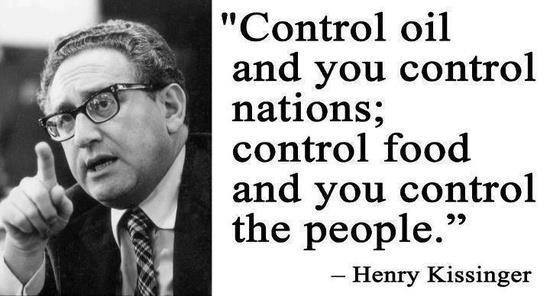 In recent public statements Klaus Schwab, founder of the Davos World Economic Forum a half century ago, cited two men who he said changed his life.
In recent public statements Klaus Schwab, founder of the Davos World Economic Forum a half century ago, cited two men who he said changed his life.
One was Henry Kissinger who was his mentor when Schwab was at Harvard in the late 1960s.
The other, surprisingly, was the Red Bishop, Dom Helder Camara.
It was Kissinger who as Nixon Secretary of State plotted to assassinate left-leaning governments in Chile, Argentina and elsewhere, replacing them with brutal military dictatorships such as Pinochet and Videla, while Helder Camara was working the opposite end, mobilizing the poor against the state.
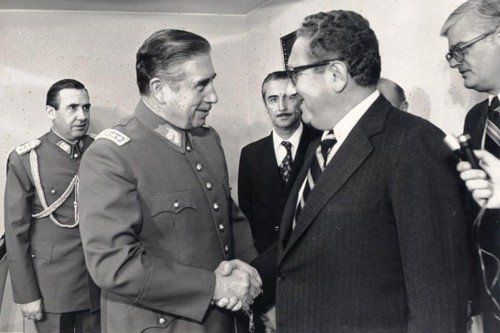 In 2010 Schwab’s World Economic Forum published a self-congratulating book modestly titled, “The World Economic Forum: A Partner in Shaping History–The First 40 Years 1971 – 2010.”
In 2010 Schwab’s World Economic Forum published a self-congratulating book modestly titled, “The World Economic Forum: A Partner in Shaping History–The First 40 Years 1971 – 2010.”
There Schwab describes the central role Kissinger played from the first in selecting speakers and guests for Schwab’s elite business gatherings.
For the year 1974 Schwab wrote,
“At the 1974 European Management Symposium (today WEF), Dom Hélder Câmara, the Roman Catholic Archbishop of Olinda and Recife, Brazil, made a notable appearance, bolstering the Forum’s role as a platform for provocative yet vital voices.”
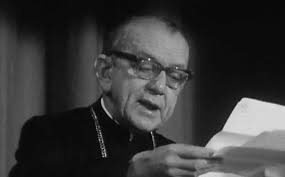 Câmara had been invited to Davos despite the fact that he was considered persona non grata by many governments and business leaders.
Câmara had been invited to Davos despite the fact that he was considered persona non grata by many governments and business leaders.
He had dubbed himself “the spokesperson of those two-thirds of humanity who suffer from the unfair distribution of nature’s resources.”
Schwab’s account continued,
“Dom Hélder predicted that developing countries could some day challenge and clash with the leading economic powers. He criticized multinationals for keeping so much of mankind in appalling conditions. He called for a higher social responsibility, fairer wealth distribution and a reassessment of “the false values of a ‘waste society’” to achieve prosperity for all people.”
Schwab in a video stated,
“one example which for me was probably a crucial moment in my life. I traveled for the first time to Brazil, I met a priest who was known at that time as the priest of the poor people, his name was Dom Hélder Câmara.”
WEF and Pope Francis
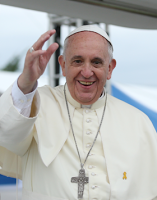 In a 2013 visit to Brazil early in his papacy, Francis named Dom Helder Camara as someone who indelibly marked the “journey of the Church in Brazil.”
In a 2013 visit to Brazil early in his papacy, Francis named Dom Helder Camara as someone who indelibly marked the “journey of the Church in Brazil.”
In his Evangelii gaudium (The Joy of the Gospel) the same year, Francis declared in language of the Liberation Theology of Helder Camara and others,
“Without the preferential option for the poor, the proclamation of the Gospel … risks being misunderstood or submerged.”
The term “preferential option for the poor” is key. It sounds noble but what in reality does it mean?
Notably, in 2014 Klaus Schwab extended a personal invitation to Pope Francis to address the Davos meeting.
Francis has since written numerous such letters to Schwab and is listed by the World Economic Forum as an Agenda Contributor. In October 2020, the official website of the Davos WEF wrote,
“In a striking, 43,000-word-long encyclical published last Sunday, the pope put his stamp on efforts to shape what’s been termed a Great Reset of the global economy in response to the devastation of COVID-19.”
By 2015 Francis, who himself poses as the special guardian of the poor, had given his sanction to initiating the official process, by the Congregation for the Causes of Saints, to begin a process of Helder Camara’s “beatification.”
Since then the present Pope has taken unprecedented political stands for Global Warming Green Agenda measures, vaccines against covid, support for gender equality, migration, wealth redistribution from rich to poor, and other social actions which have dominated his controversial papacy.
The Great Reset
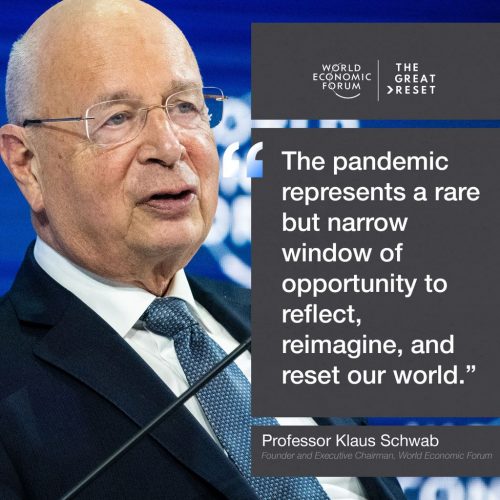 The relevant question to be asked is why the founder of the world’s most influential corporate globalization forum, Klaus Schwab, would embrace the founder of the Liberation Theology and the current liberal Pope Francis, the first-ever Jesuit Pope who slyly revives those ideas today?
The relevant question to be asked is why the founder of the world’s most influential corporate globalization forum, Klaus Schwab, would embrace the founder of the Liberation Theology and the current liberal Pope Francis, the first-ever Jesuit Pope who slyly revives those ideas today?
It’s definitely not that Klaus Schwab who is embracing Marxism. Schwab is the “Godfather of Globalization.”
The fusion of the ideologies of Francis and Schwab is a clever way of creating mass support, especially among younger and poorer people round the world for the wholesale attack on private property and on a stable middle-class required for the global corporatist Great Reset, a global technocratic fascism from above.
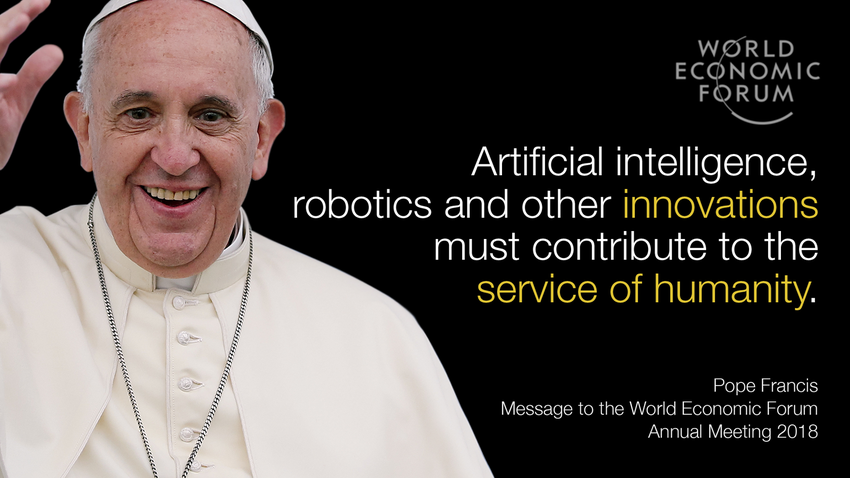 In November 2020, Pope Francis declared that a new “social justice” is needed, and that private ownership is not something obvious in Christianity: “Let us build the new social justice and admit that the Christian tradition has never recognized the right to private property as absolute and immovable,” said Francis. He does not elaborate.
In November 2020, Pope Francis declared that a new “social justice” is needed, and that private ownership is not something obvious in Christianity: “Let us build the new social justice and admit that the Christian tradition has never recognized the right to private property as absolute and immovable,” said Francis. He does not elaborate.
Image source: WEF (Pope Francis Message at WEF Annual Meeting, Davos, 2018
In October, 2020 the pope issued an encyclical letter, Fratelli Tutti, in which he went after private property. He wrote,
“Business abilities, which are a gift from God, should always be clearly directed to the development of others and to the elimination of poverty…”
He declared,
“The right to private property is always accompanied by the primary and prior principle of the subordination of all private property to the universal destination of the earth´s goods, and thus the right of all to their use.”
This is remarkably similar to what Schwab of the WEF writes in his 2020 book, The Great Reset, where he states,
“First and foremost, the post-pandemic era will usher in a period of massive wealth redistribution, from the rich to the poor and from capital to labour.”
Schwab claims that the era of free market neoliberalism is over and major Government intervention is needed to enact “sustainable” environmental policies.
On the WEF website Schwab’s organization described their vision of the reset to a world where no one owns anything. A video declares of their vision of the world in 2030, “You will own nothing and you will be happy,” adding that “Whatever you need, you will rent.”
It would even include renting your clothes!
In 2030 “You’ll own nothing, And you’ll be happy.” (see video below)
[embedded content]
.
Schwab states that this radical redistribution of property rights globally will be necessary to attain “ecological justice.” This echoes Francis’ call for a “green financial agenda” to replace the current financial system.
The Davos embrace of the Vatican agenda is far more sinister than it might seem.
Their Great Reset is about the end to human liberty or freedom in favor of a new globalist agenda of total control, high-tech surveillance, mandated medications and massive income redistribution from the middle class of society down. Schwab is nothing if not a master of marketing, and his dystopian Great Reset and its “ecological justice” is just that.
F. William Engdahl is strategic risk consultant and lecturer, he holds a degree in politics from Princeton University and is a best-selling author on oil and geopolitics.
He is Research Associate of the Centre for Research on Globalization (CRG).


